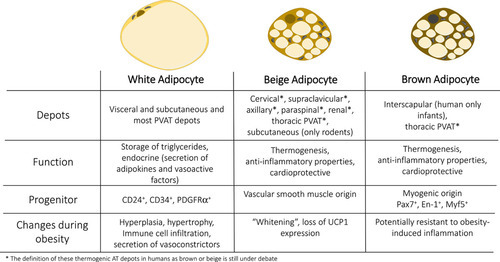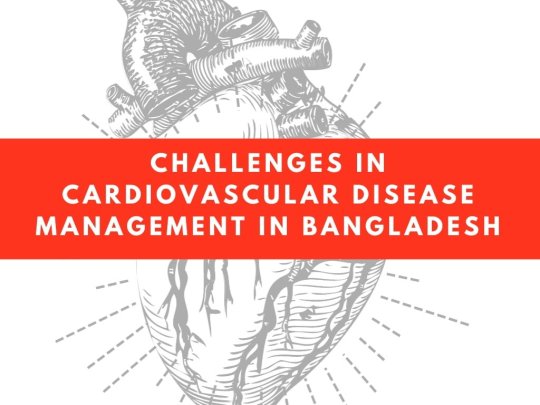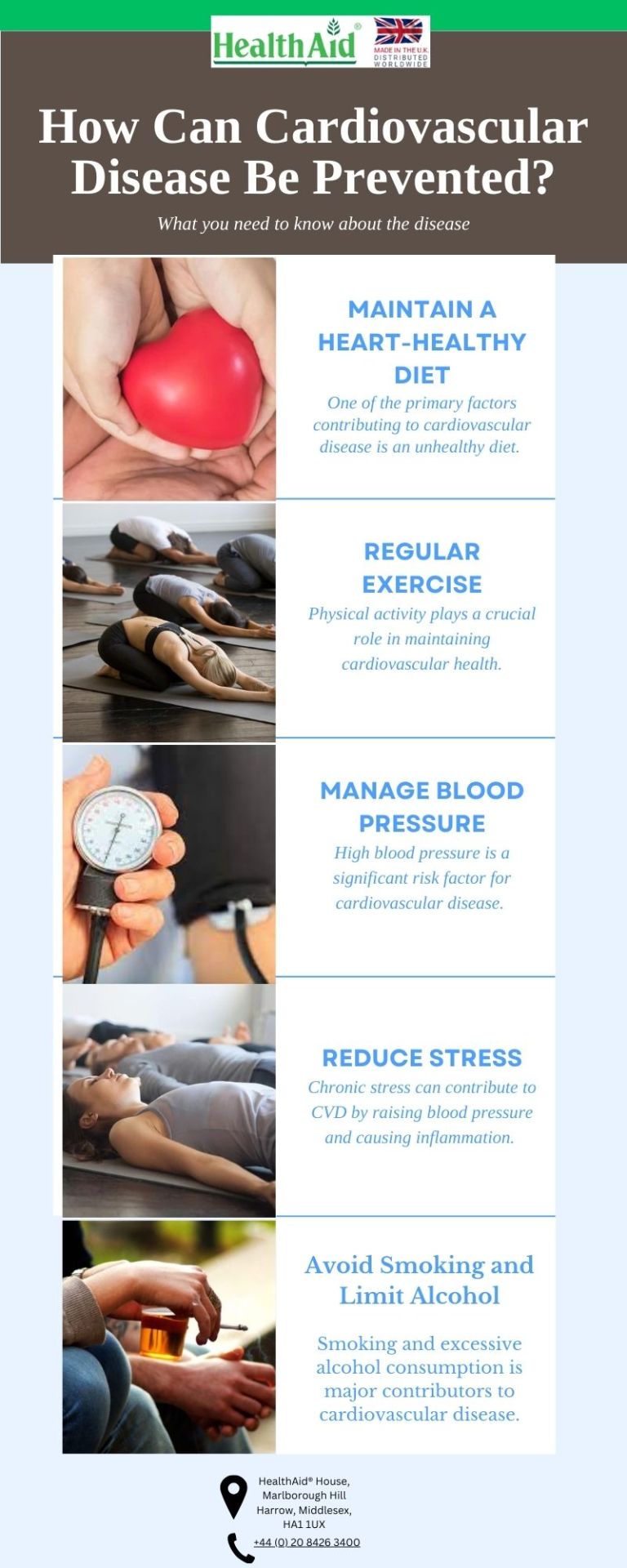#cardiovasculardisease
Text
Đại diện Ban lãnh đạo Trung tâm Thuốc dân tộc và một số chuyên gia, bác sĩ đầu ngành tại đơn vị đã tham gia lễ ký quyết định thành lập dự án “Bảo vệ Tim mạch Việt Nam”. Đồng thời chính thức thành lập Hội đồng nghiên cứu bài thuốc đặc trị rối loạn lipid máu bằng YHCT.
#thuocdantoc#thuốc_dân_tộc#health#Dyslipidemia#CardiovascularDisease#Stroke#health and wellness#healthcare#wellness#healthyfood#health tips#health & fitness#medicine
5 notes
·
View notes
Text
Trung tâm Thuốc dân tộc đã phối hợp cùng Viện Y Dược cổ truyền dân tộc chính thức triển khai chương trình tặng mũ bảo hiểm miễn phí tại một số điểm trên địa bàn TP Hà Nội. Chương trình nhằm tuyên truyền, gây quỹ cho dự án “Bảo vệ tim mạch Việt Nam”.
#thuocdantoc#thuốc_dân_tộc#health#benhtimmach#CardiovascularDisease#mubaohiem#Helmet#health and wellness#healthcare#healthyfood#health tips#health & fitness#wellness#medication
5 notes
·
View notes
Link
2 notes
·
View notes
Text

Post: Intermittent fasting may nearly double risk of dying from cardiovascular disease, study finds https://www.blaqsbi.com/5MCQ
0 notes
Link
#Cardiacdiet#cardiovasculardisease#Health#HeartHealth#HowcanImakemyheartstrong?#improveyourhearthealth#Omega3#preventheartdisease#SuperFoodsforyourHeart#Whatfoodspreventheartattacks?#Whichfoodisbestforheart?
0 notes
Text

𝐓𝐢𝐩𝐬 𝐟𝐨𝐫 𝐇𝐞𝐥𝐩𝐢𝐧𝐠 𝐌𝐚𝐧𝐚𝐠𝐞 𝐀𝐭𝐡𝐞𝐫𝐨𝐬𝐜𝐥𝐞𝐫𝐨𝐬𝐢𝐬!
𝐀𝐫𝐣𝐮𝐧𝐚 𝐁𝐚𝐫𝐤 𝐟𝐨𝐫 𝐇𝐞𝐚𝐫𝐭 𝐒𝐭𝐫𝐞𝐧𝐠𝐭𝐡:Include Arjuna bark in your routine to support heart muscles, regulate blood pressure and manage atherosclerosis.
𝐓𝐫𝐢𝐩𝐡𝐚𝐥𝐚 𝐟𝐨𝐫 𝐀𝐫𝐭𝐞𝐫𝐢𝐚𝐥 𝐂𝐥𝐞𝐚𝐧𝐬𝐢𝐧𝐠:Embrace Triphala for its detoxifying properties, promoting improved blood circulation and reducing the risk of atherosclerosis.
𝐆𝐚𝐫𝐥𝐢𝐜 𝐟𝐨𝐫 𝐂𝐡𝐨𝐥𝐞𝐬𝐭𝐞𝐫𝐨𝐥 𝐂𝐨𝐧𝐭𝐫𝐨𝐥:Integrate garlic for its cholesterol-lowering benefits, crucial in preventing plaque buildup and supporting heart health.
𝐇𝐚𝐰𝐭𝐡𝐨𝐫𝐧 𝐁𝐞𝐫𝐫𝐲 𝐟𝐨𝐫 𝐕𝐞𝐬𝐬𝐞𝐥 𝐇𝐞𝐚𝐥𝐭𝐡:Explore Hawthorn Berry, known to enhance blood vessel health, supporting a robust cardiovascular system.
𝐂𝐨𝐧𝐭𝐚𝐜𝐭 𝐔𝐬 𝐭𝐨 𝐁𝐞𝐠𝐢𝐧 𝐘𝐨𝐮𝐫 𝐀𝐲𝐮𝐫𝐯𝐞𝐝𝐢𝐜 𝐇𝐞𝐚𝐥𝐢𝐧𝐠!
➡️𝐂𝐚𝐥𝐥/𝐖𝐡𝐚𝐭𝐬𝐀𝐩𝐩: 099143 21828
➡️𝐄-𝐦𝐚𝐢𝐥: [email protected]
#atherosclerosis#omega#heartdisease#highbloodpressure#cardiovasculardisease#hearthealth#hearthealthy#hypertension#healthyheart#pharmacist#cardiovascularhealth#inflammation#hearthealthawareness#inflammationrelief#fattyacids#resolvins#wellnessjourney#improveyourhealth#cardiovascualr#bloodpressurecontrol#pharmaceuticalscience#molecules
0 notes
Text

Ectopic fat- Ectopic fat is defined as storage of TG in tissues other than adipose tissue, that normally contain only small amounts of fat, such as the liver, skeletal muscle, heart, and pancreas. Ectopic fat can interfere with cellular functions and hence organ function and is associated with insulin resistance.
White adipose tissue (WAT) represents the largest proportion of whole-body AT and can be found around major organs and blood vessels in the abdominal cavity and subcutaneously. WAT stores excess energy in the form of triglycerides, and increased accumulation of WAT, particularly in visceral depots, is a key determinant of the relative risk for cardiometabolic disorders, hypertension, and Cerebrovascular Disease (CVD). To this point, fat distribution dictates CVD risk such that individuals with higher visceral AT and ectopic fat have an increased prevalence of cardiometabolic disorders including hypertension, dyslipidemia, and insulin resistance compared with equally obese individuals with less visceral AT and relatively more subcutaneous fat.
#fitspiration#thinspø#thinspiration#health & fitness#health#healthy#workout#fitness#vegan#cardiovasculardisease#medicine#studyblr#medschool#running#gymmotivation#gymlife
1 note
·
View note
Text
How to Improve Heart Health with Exercise
Your heart, like every other muscle in your body, needs to be worked. According to studies, people who engage in some form of exercise have a lower risk of developing a heat-related illness. But which types of exercise are the most beneficial to one’s heart health?
Aerobic Exercise:
What is aerobic exercise, and how does it differ from other types of exercise? Aerobic exercises such as biking, jogging, and running all cause your heart to beat faster. These aerobic exercises, sometimes known as “cardio,” force you to breathe harder and elevate your heart rate. Cardio is one of the best activities for improving heart health, according to India’s top cardiac physician.
If you have joint problems, however, opt for a light aerobic activity like walking or swimming. It’s crucial to stay consistent and not overwork yourself. If you want more challenges, the finest Heart Doctor in Aurangabad recommends starting slowly, building up your strength, and progressing up a level.
Weight Training
Weight training is an excellent form of exercise for improving both bone and muscular health. Pull-ups, push-ups, squats, and other weight-training activities are examples. According to a prominent cardiac specialist in Aurangabad, you can now acquire dumbbells and resistance bands online and begin weight training and stretching at home.
If you can afford to join a gym, you’ll have access to a variety of equipment such as kettlebells, stability balls, weighted body bars, and more. Weight training, when combined with aerobics, will help you burn body fat and increase muscular mass, according to Dr. Umesh Khedkar. A healthy body weight is essential for a healthy heart.
Interval Training
Consider the shape of a sinusoidal wave. Interval training consists of short bursts of intensive exercise separated by significantly longer rest intervals. In alternate periods, this is followed by a high-intensity exercise and then recuperation.
According to India’s best heart doctor, interval exercise (i.e., increasing and decreasing your heart rate alternately) permits blood vessels to operate optimally. Plus, you’ll burn more calories this way.
Let’s have a look at an example. You can sprint for two minutes, then take a four-minute walk, and so on. This is especially beneficial if you’re just getting started and can’t run or jog for long periods of time, according to Dr. Umesh Khedkar these are the top three heart-healthy exercises recommended by the country’s greatest cardiologist. If you can carve out even 30 minutes of your day for one of these activities, it will pay off handsomely in the long run.
Book an Appointment if you have a heart disease (or suspect so), schedule an appointment Dr. Umesh Khedkar. To begin appropriate treatment, it’s important to first get a proper diagnosis and consultation with the doctor.
Dr. Umesh Khedkar is one the best cardiologists in Aurangabad,has done specialization in Cardio-thoracic and Vascular Surgery with distinction and stood first in Mumbai University B.Y.L. Nair Charitable Hospital and T.N. Medical College Mumbai India. He is one of the safest heart surgeon in the world with a more than 99.7% success rate in bypass surgery. Dr. Umesh Khedkar is one of the eminent and famous cardiac surgeon in Aurangabad and has performed over 10,000 cardiac Surgeries. He is actively involved in Minimally Invasive heart surgery programs and has done several such surgeries with excellent results. He is involved in large-scale charitable work, providing medical treatment and heart care to the neediest section of a society free of cost.
Dr. Umesh Khedkar ,providing Heart Surgery treatment In Aurangabad Dr. Umesh Khedkar He has more than 10 years of experience in this field he has best team for Heart surgery hospital is well known for Heart Specialist in Aurangabad.
#Cardiologist#Aurangabad#DrUmeshKhedkar#HeartHealth#HealthyHeart#CardiovascularDisease#HeartDoctor#AurangabadDoctors#HealthcareAurangabad#AurangabadCity#BestCardiologist#HeartSpecialist#CardiologyAurangabad#AurangabadHealthcare
0 notes
Text
#cardiovascular#cardiology#cardio#heart#cardiologist#hearthealth#cardiac#prestoinflationdevice#heartsurgeon#heartdisease#echocardiography#medical#echocardiogram#cardiovascularhealth#cardiacsurgery#cardiovasculardisease#bardmedicalseller#bardmedical#bard
1 note
·
View note
Text
Challenges in Cardiovascular Disease Management in Bangladesh

I. Introduction
Cardiovascular diseases, like heart disease and stroke, are a significant health challenge in Bangladesh. They require urgent attention due to their broad impact and potential consequences. The high prevalence of cardiovascular diseases in densely populated Bangladesh affects many people and strains healthcare resources, emphasizing the need for proactive measures.
II. Cardiovascular Disease in Bangladesh
In Bangladesh, CVD is a major health concern affecting a large portion of the population. These diseases encompass a range of heart and blood vessel-related conditions, including heart disease and strokes. The prevalence of cardiovascular diseases in the country is high, and they are a significant cause of illness and death. This not only takes a toll on the overall well-being of the population but also has a substantial impact on the healthcare system and the nation's economy.
The burden of cardiovascular diseases in Bangladesh is not limited to any specific age group or socioeconomic status. People from various backgrounds can be affected, making it a pervasive issue. In addition to the individual suffering, the strain on healthcare resources and the cost of medical treatment are substantial. As a result, addressing the challenges associated with cardiovascular disease management in Bangladesh is of utmost importance to reduce the health and economic burden on the country.
III. Challenges in Prevention
Preventing cardiovascular diseases is a critical aspect of managing the burden they impose on Bangladesh. However, several challenges hinder these efforts. Firstly, there is a lack of awareness and health education about the risk factors and prevention strategies for heart disease. Many people do not know how their lifestyle choices, such as diet and physical activity, can impact their heart health.
Secondly, limited access to preventive healthcare services is a significant obstacle. Not everyone in Bangladesh has easy access to regular check-ups and screenings, which are essential for early detection and prevention. Especially in rural areas, healthcare facilities may be scarce, making it challenging for people to receive the necessary information and services to protect their hearts.
Thirdly, lifestyle factors, such as poor dietary habits and physical inactivity, contribute to the rising incidence of cardiovascular diseases in Bangladesh. Traditional diets high in salt and unhealthy fats, combined with a lack of exercise, increase the risk of developing heart problems. These challenges in prevention call for widespread educational campaigns, increased access to healthcare, and efforts to promote healthier living to address the root causes of cardiovascular diseases.
IV. Challenges in Diagnosis
Diagnosing cardiovascular diseases in Bangladesh poses a set of unique challenges. The healthcare infrastructure and resources available for diagnosis may be inadequate, particularly in rural areas. Access to specialized medical equipment and trained professionals is limited, which can result in delays and difficulties in identifying heart conditions.
Moreover, there is a shortage of healthcare professionals with the specialized knowledge and skills needed to accurately diagnose cardiovascular diseases. Cardiologists and other specialists are often concentrated in urban areas, making it difficult for people in remote regions to access timely and appropriate care.
Limited access to diagnostic tools and technology is another critical issue. Advanced diagnostic equipment like echocardiograms and angiography machines may not be readily available in all healthcare facilities. This can lead to patients having to travel long distances for necessary tests or facing prolonged waiting times, potentially exacerbating their conditions.
Addressing these diagnostic challenges in Bangladesh involves improving healthcare infrastructure, increasing the number of trained professionals, and making advanced diagnostic tools more accessible across the country. Timely and accurate diagnosis is essential for effective management and treatment of cardiovascular diseases.
V. Challenges in Treatment
The treatment of cardiovascular diseases in Bangladesh encounters several hurdles, affecting the quality of care and outcomes for patients. Accessibility and affordability of cardiovascular treatments are significant issues. Many people, especially those from lower socioeconomic backgrounds, struggle to access the necessary medical interventions and medications. The cost of heart surgeries, stent placements, or long-term medication can be prohibitively expensive for a large segment of the population.
Additionally, there is a shortage of specialized healthcare providers, particularly cardiologists and cardiac surgeons. The concentration of these experts in urban areas leaves residents of rural regions with limited access to specialist care. This can result in delayed treatment and poorer outcomes for patients.
Furthermore, medication adherence and follow-up care present challenges. Some patients may find it challenging to adhere to a strict medication regimen, which is crucial for managing their heart conditions. Follow-up appointments and ongoing care can be difficult to maintain, particularly for those living in remote areas or with limited financial resources.
Efforts to overcome these treatment challenges include measures to make cardiovascular treatments more affordable and accessible, increasing the number of specialized healthcare providers in rural areas, and implementing strategies to improve medication adherence and follow-up care. Addressing these issues is crucial to improving the management of cardiovascular diseases in Bangladesh.
VI. Conclusion
In summary, Challenges in Cardiovascular Disease Management in Bangladesh are out of the zone. Cardiovascular diseases, such as heart disease and stroke, present a critical health challenge in Bangladesh. These conditions affect a significant portion of the population and require immediate attention due to their far-reaching impact. The prevalence of these diseases places a strain on healthcare resources, emphasizing the need for proactive measures. Addressing this issue is vital not only for the well-being of the Bangladeshi people but also to ensure the sustainable functioning of the healthcare system. Therefore, exploring the causes, risk factors, and treatment options for cardiovascular diseases is essential, as it forms the foundation for effective interventions that contribute to the nation's development and the overall health of its citizens.
Read the full article
0 notes
Text
Specially prepared for individuals with high blood pressure it contains the least amount of sodium and includes blood pressure-friendly ingredients including salmon, extra-virgin olive oil, lemon juice, honey, ginger, and garlic.
#hypertension#hypertensionsupport#hypertensionawareness#bloodpressure#BloodPressureMonitor#bloodpressurecuff#bloodpressureprobs#highbloodpressure#bloodpressurescreening#HTN#cardiovasculardisease#hearthealth#healthyheart#highsalt#taichi#reducebloodpressure#stress#Mediterraneandiet#dash#weightmanagement#supplements#foodasmedicine#brisbanenaturopath#naturopath#functionalmedicine#functionalmedicinebrisbane#bestnaturopath#wellness#naturalmedicine
0 notes
Text
Regular cannabis use increases heart risks: study
Two preliminary studies to be presented at the American Heart Association Scientific Sessions in 2023 have shed light on the potential risks associated with regular marijuana use for cardiovascular health.
The first study, conducted as part of the “All of Us” Research Program sponsored by the National Institutes of Health, looked at more than 150,000 adults in the U.S. The researchers focused on the relationship between daily marijuana use and heart failure.

During a nearly four-year follow-up, people who reported daily marijuana use were found to have a 34% increased risk of developing heart failure compared to those who had never used marijuana. This risk persisted regardless of participants’ age, gender, and smoking history.
Additionally, when coronary artery disease was considered, the risk of heart failure was reduced to 27%. These findings suggest a possible connection between daily marijuana use and heart failure and highlight the importance of further studying the impact of marijuana on cardiovascular health. Read more
#cannabis#cannabiscommunity#weed#marijuana#thc#cbd#cannabisculture#weedporn#healthy#lifestyle#medicalmarijuana#health#smoker#cannabisusedisorder#heartdisease#cardiovasculardisease#hearthealth
0 notes
Text

𝟏. 𝐇𝐞𝐚𝐫𝐭 𝐒𝐮𝐫𝐠𝐞𝐫𝐲: Cardiovascular surgeons perform a variety of heart surgeries to treat conditions such as coronary artery disease, #valvularheartdisease, #congenitalheartdefects, and #heartfailure. 𝟐. 𝐕𝐚𝐬𝐜𝐮𝐥𝐚𝐫 𝐒𝐮𝐫𝐠𝐞𝐫𝐲: #vascularsurgeon specialize in the surgical treatment of blood vessel disorders, including aortic #aneurysms, #PeripheralArteryDisease (PAD), #CarotidArteryDisease, and #VenousDisorders.
Visit: https://symbiosisonlinepublishing.com/thoracic-and-cardiovascular-surgery/
#heartsurgery#vascularsurgery#cardiovasculardisease#cardiovascularhealth#hearthealth#bloodvessels#cardiovascularsupport#CardiovascularCare#cardiovascularfitness#Medication#thoracic#cardiovascular#journals#onlinejournal#onlinepublication#onlinepublishing#pubmed#PeerReview#peerreviewed#openaccess#openaccessjournal#publicjournals#AmericanJournal#symbiosisonlinepublishing
0 notes
Text

#healthaid#cardiovasculardisease#heartdisease#diabetes#hearthealth#health#heart#healthylifestyle#heartattack#healthyliving#cardiovascular
0 notes
Text
Did you Know?

Heart valves are important to keep the blood flow, any abnormality in their function can be serious. Although not all cardiovascular and thoracic disorders show signs, for example heart murmurs, this particular condition does not show any particular signs until the disorder has completely progressed.❤️👨⚕️
Hence it is always important to maintain good #hearthealth along with being aware of your heart health can help you to seek help immediately.🏥
Want to consult? Book your appointment with our expert cardiovascular and thoracic surgeons TODAY!
Learn more>>https://bit.ly/3MiC9Ki
#cardiovascular#cardiovascularhealth#cardiovasculardisease#sriramakrishnahospital#hospitalincoimbatore#healthcare#coimbatore#healthandwellness#bookyourappointment
0 notes
Text
Case Reports in Cardiovascular Disease PubMed Journal
0 notes